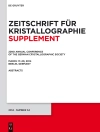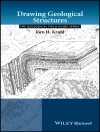EARTH’S FURY
Natural disasters are any catastrophic loss of life and/or property caused by a natural event or situation. This definition could include biologic issues such as contagion, injurious bacterial colonization, invasion of dangerous plants and infestations of insects and other vermin. However, the popular understanding of what constitutes a natural disaster still focuses on disasters involving the physical properties of the earth and its atmosphere: earthquakes, volcanoes, tsunamis, avalanches, tropical storms, tornadoes, floods and wildfires.
Earth’s Fury: The Science of Natural Disasters attempts to combine the best features of a scientific textbook and an encyclopedia. It retains the organization of a textbook and adopts the highly illustrative graphics of some of the newer and more effective textbooks. The book’s unique approach is evident in its plethora of case studies: short, self-contained and well-illustrated stories of specific natural disasters that are highly engaging for both science and non-science majors. The stories incorporate the science into the event so students appreciate and remember it as part of the story. By relating the event to the impact on society and human lives, the science is placed in the context of the student’s real life.
Boasting a number of striking and highly detailed double-page illustrations of disaster-producing features, including volcanoes, earthquakes, tsunamis and hurricanes, this book is as much a visual resource as a textbook. For students who are probably most familiar with natural disasters through Hollywood movies, this book’s own ‘widescreen presentation’ is coupled with exciting stories which will enhance their interest as well as their understanding.
Whether they are science or non-science majors, Earth’s Fury: The Science of Natural Disasters will appeal to all students, with its fresh approach and engaging style.
Cuprins
Preface
Chapter 1: Introduction to Natural Disasters
Chapter 2: Moving Continents
Chapter 3: How Does Rock Melt?
Chapter 4: Types of Volcanoes
Chapter 5: Volcanic Hazards
Chapter 6: Causes of Earthquakes
Chapter 7: Earthquakes 101
Chapter 8: Earthquake Hazards
Chapter 9: Killer Tsunamis
Chapter 10: Predicting Earthquakes and Reducing Hazards
Chapter 11: Avalanches and Landslides
Chapter 12: Weather and Storms
Chapter 13: Ocean Circulation and Coastal Systems
Chapter 14: Hurricanes, Cyclones, and Typhoons
Chapter 15: Tornadoes and Supercells: Terrors of the Plains
Chapter 16: Devastating Floods and Their Aftermath
Chapter 17: Droughts and Desertification
Chapter 18: Impacts: Collisions from Space
Chapter 19: Climate Change Dynamics
Despre autor
About the Author
Alexander Gates is Distinguished Service Professor and Chair in the Department of Earth and Environmental Sciences, Rutgers University, USA.












